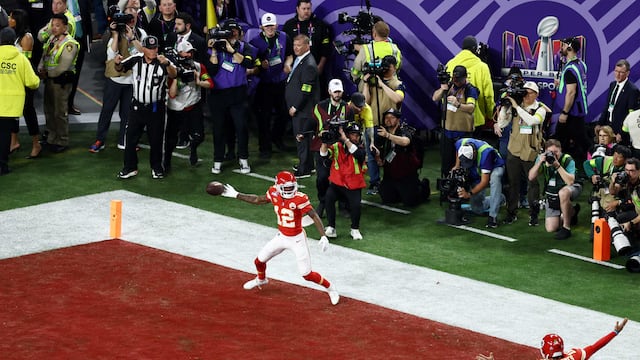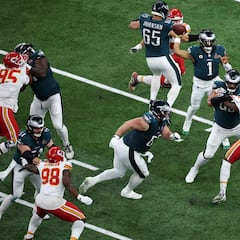Super Bowl LX goes into overtime, with the score tied, what happens then? Let’s take a look.

Super Bowl overtime rules: why both teams now get a chance to score and what happens if there is a tie

The 2024 Super Bowl went to overtime! A late field goal by the Chiefs tied the score up at 19 each at the end of regulation time, meaning the game went into overtime. It could happen again this year, let’s take a look at the rules.
Playoff competition - with the Super Bowl included - is a different proposition to the regular season games and features some rule changes. One of the key alterations made for the post-season period is the overtime rules, with games unable to end in a tie. Here’s how things now pan out if the Super Bowl ends in a tie at the final whistle.
Kansas City Chiefs' FULL Super Bowl Winning Drive - Patrick Mahomes Seals It In Overtime - #NFL #RFC pic.twitter.com/0Di2u0kbG2
— Lợi VP (@jin88vp) February 13, 2024
NFL post-season overtime rules
Super Bowl overtime rules
- At the end of regulation, the referee will toss a coin to determine which team will possess the ball first in overtime. The visiting team captain will call the toss.
- Each overtime period is 15 minutes long. Each team must possess, or have the opportunity to possess, the ball.
- The only situation in which both teams would not get a possession would be if the team on defense first scores a safety. In that case, the safety would win the game.
- If the score is still tied at the end of an overtime period — or if the second team’s initial possession has not ended — the teams will play another overtime period. Play will continue regardless of how many overtime periods are needed for a winner to be determined.
- There will be a two-minute intermission between each overtime period. There will not be a halftime intermission after the second period.
- If the game is still tied after four quarters of overtime, there will be another coin toss and play will continue like it’s the first quarter of a new game, a game in which the first team to score wins.
- The captain who lost the first overtime coin toss will either choose to possess the ball or select which goal his team will defend, unless the team that won the coin toss deferred that choice.
- Each team gets three timeouts during a half.
- The same timing rules that apply at the end of the second and fourth regulation periods also apply at the end of a second or fourth overtime period.
- If there is still no winner at the end of a fourth overtime period, there will be another coin toss, and play will continue until a winner is declared.
Super Bowl LX is set 🏆@Patriots vs @Seahawks pic.twitter.com/RNVFYKVfbI
— FOX Sports: NFL (@NFLonFOX) January 26, 2026
Can playoff overtime go on forever?
In theory, yes! The Super Bowl must be decided on the night, meaning that teams continue in overtime until a winner is found.
Super Bowl LVIII in 2024 was played under the NFL’s current playoff overtime rules. The 49ers won the toss, chose to receive and kicked a field goal on their first possession. The Chiefs then marched down the field and scored a touchdown on their first possession, to win the game.
Related stories
The longest ever playoff game came in 1971, when a Divisional playoff match between the Miami Dolphins and the Kansas City Chiefs lasted an astonishing 82 minutes and 40 seconds. The game was midway through the second period of overtime when Garo Yepremian scored a 37-yard field goal for the Dolphins.
Get your game on! Whether you’re into NFL touchdowns, NBA buzzer-beaters, world-class soccer goals, or MLB home runs, our app has it all. Dive into live coverage, expert insights, breaking news, exclusive videos, and more – plus, stay updated on the latest in current affairs and entertainment. Download now for all-access coverage, right at your fingertips – anytime, anywhere.


Complete your personal details to comment